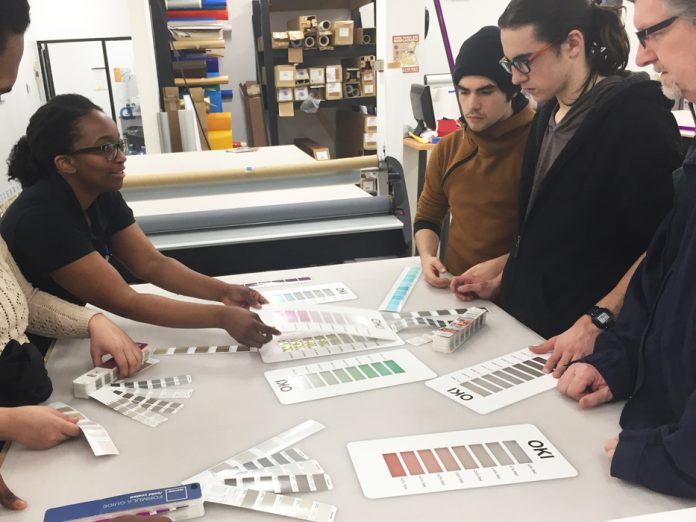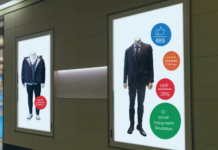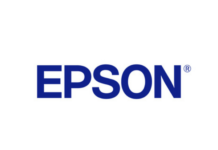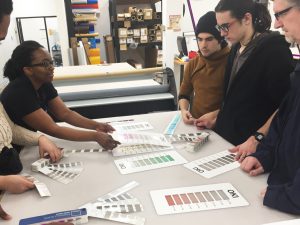 Students from the Common Ground charter high school of New Haven, Conn. were introduced to the world of printing when they visited SignCenter, a wholesale large-format print provider in Milford, Conn. The purpose of their visit was career exploration and to learn about the various types of skills needed to work in the print industry. SignCenter owner, Michael Oliveras headed the tour and also gave the students meaningful advice on joining the workforce.
Students from the Common Ground charter high school of New Haven, Conn. were introduced to the world of printing when they visited SignCenter, a wholesale large-format print provider in Milford, Conn. The purpose of their visit was career exploration and to learn about the various types of skills needed to work in the print industry. SignCenter owner, Michael Oliveras headed the tour and also gave the students meaningful advice on joining the workforce.
On April 5, 2018, thirteen students from Common Ground attended the tour which began with students gathering in the lunch room. Oliveras described SignCenter’s business model and what it means to be a wholesale printer. He explained that their customer base consists of other printers, print brokers and print resellers and how they all rely on SignCenter to deliver high quality prints to their end-users– in a timely and consistent fashion. “We need to make sure we ship the very best products that we can,” said Oliveras. “It is crucial to pay special attention to detail and quality control.”
Oliveras imparted some of his insights on what makes a valuable employee explaining that employers are looking for candidates that are willing to work and have enthusiasm about the work. He impressed upon them the importance of basic math skills and common sense, which he candidly expressed, “many of today’s candidates are lacking.” He stressed that managers take note of the employees who go above and beyond their job description and encouraged the students to make themselves invaluable. “Show up every day, be on time, do your work and if you don’t have anything to do, pick up a broom.”
Next Oliveras took students through the 24,000 square foot facility showing students the various printers and print methods explaining how they could be used for many applications. Students were able to experience first-hand the difference between latex, solvent, UV, and dye-sublimation printing. They learned how digital die cutting worked and were introduced to large-format banner construction, and dye sublimation to rigid boards such as aluminum. Oliveras explained that sewing was another skill that is hard to find and told them if they always wanted a job, to learn to sew. After the tour was completed, students were broken into groups to work at three stations where they were able to apply their math skills with interactive tasks.
At the first station, Production Manager, Chrisy Fletcher, taught the students about yield. Explaining that it is important to get as many prints on a sheet with the least amount of waste, she set up 3 challenges for the students to complete. First was a challenge to get as many 12” x 18” prints on a 4’ x 8’ board and then also 18” x 24”. Second, was a mock order containing various sized prints. Students were asked to determine how many boards would be needed to complete the order with the least amount of waste. They could work on paper or use cut pieces of coroplast and arrange them to find the answer. Chrisy related it to a live version of the video game Tetris. Finally, there was also a challenge to determine how many rolls of vinyl would be needed to fulfil a sample order for stickers.
At the die-cutting station, SignCenter employee, Paulo Campos explained how die cutting worked and how important it is to be precise. In order to set the die cutter up properly, he has to enter the substrate’s thickness and the method of cutting being used. He taught each student how to use calipers to measure the thickness and how to program the Zund cutter. Students were able to each take a turn measuring and adding the specs to the computer. If successful, they were rewarded with a die cut object of their choice.
At the final station, SignCenter employee, Tatiana Robinson, taught the students how important color matching is. For this hands-on activity she deliberately printed several pantone colors slightly off. She gave the students a pantone color swatch book and custom CMYK color filters which had each color segmented by incremental percentages. Students were to adjust the colors by adding or removing percentages of CMYK.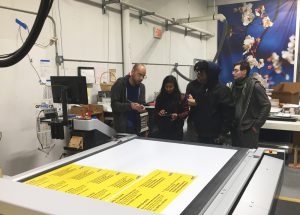
Robinson also had the students take the X-Rite Hue test. This online test scores how well one sees color. There are 4 rows of color chips each with the first and last color chips fixed in place. In between the two blocks are several hues that are randomly placed. The user is asked to rearrange the color blocks into a seamless gradient. Several of the Common Ground students were excited to learn that they had earned a perfect score of 0. One student, after learning that Robinson did not get a perfect score, joked, “Look out, I am going to take your job.”
Overall it was a successful visit. The students seemed fascinated with all that could be done at the shop. Several students asked about the opportunity for an internship or even a job. Oliveras told them they were all welcome to reach out to him at the appropriate time and he would see what he could do. The students ended their time at SignCenter with some snacks and drinks and according to one of their teachers were still buzzing about their trip the next day.


